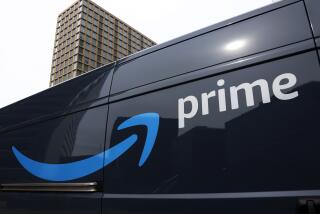U.S. Agency May Decide Chip Battle
The global patent battle between two Southern California chip makers for supremacy in a fast-growing segment of the wireless-telephone industry could be decided in an obscure corner of the Washington bureaucracy.
Broadcom Corp. of Irvine is asking an International Trade Commission official to decide next week to bar the importing of handsets that use technology from San Diego-based Qualcomm Inc.
Broadcom says the Qualcomm technology, which provides high-speed Internet access and enables users to view high-quality videos, violates patents on its chips.
The outcome of the fight may determine control of the U.S. market for so-called 3G, or third-generation, wireless handsets, a market that exceeded $1 billion last year.
The stakes are so high for both companies that some experts say they would be foolish not to reach a settlement, rather than risk an adverse decision.
“I can guarantee you that their customers are calling them every day and pushing them to settle,” said Lyle Vander Schaaf, a patent lawyer with Bryan Cave in Washington who isn’t involved in the dispute. Vander Schaaf is a former lawyer with the trade commission.
Charles Bullock, an administrative law judge at the International Trade Commission, is due to decide Oct. 10 whether the government should bar the Qualcomm-powered phones.
Bullock’s decision will be reviewed by the six-member commission.
After that, it may be challenged in a federal appeals court in Washington.






